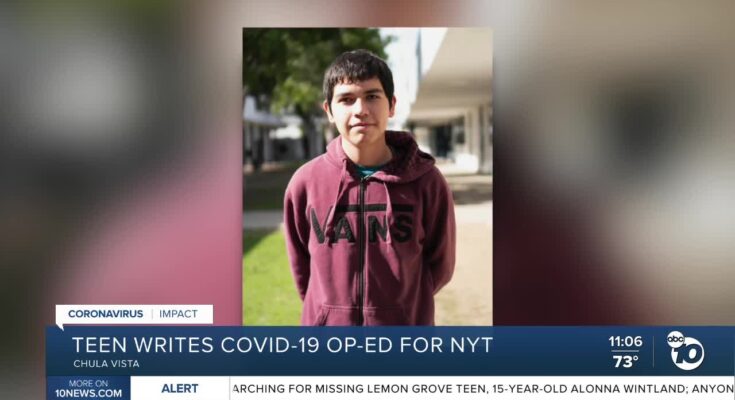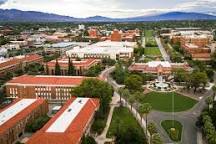Issac Lozano has a lot on his mind these days. The 17 year old senior at Bonita Vista High in Chula Vista, California was excited about the new school year. But COVID-19 has hit his Hispanic community hard. An uncle and his mother recently passed from the virus, and Issac worries about his own family of five, who live in a cramped 920 square foot apartment. Both of Issac’s parents are essential workers, and he shares a bedroom with two younger brothers. While the entire family practice all the CDC precautions, they still live in the danger zone.
Because Hispanics and people of color are more likely to suffer from the virus, Chula Vista’s South Bay School district started working remotely with students back in April, and extended that plan for at least the first fall semester. Issac has always been a straight-A student, however distance learning presents a problem as he wanders the apartment for Wi-Fi hot spots. He usually ends up at the kitchen table with his laptop, hardly a place void of noise in one of the home’s common areas. Still, he prefers this arrangement over classroom learning until it is safe to be back on campus.
“I would much rather endure the troubles of distance learning than return to campus prematurely,” reasons the teen. “I don’t want to sacrifice my health or that of my family.”
That being said, Issac feels frustrated. He’s angry that he lives in a coronavirus “hot bed,” and that his immigrant parents are limited in what they can provide for him. Yet, he understands that he is still more fortunate than some of his friends. So Issac decided that the best way to channel his feelings was to vent on his computer. He wrote an essay titled, “Remote Learning Is Hard. Losing Family Members Is Worse.” Then for the heck of it, Issac decided to send his piece off to the New York Times, still one of America’s most prestigious news agencies. What did he have to lose? After all, Issac’s English teacher had told him last year that he had a talent for writing.
Sure enough, the Times published Issac’s story in it’s Op-Ed section of the newspaper on August 13th and since then, the youngster’s outlook on life has changed. Complete strangers have contacted Issac to offer help, and he has received letters from a publishing company and a literary agent. A local congressional candidate has even offered him an internship.
It’s important for all of us to understand the struggles of folks like Issac and his family because they are part of America’s landscape. Latinos are hard working people often too proud to ask for help, but many still live on the fringes of society due to language and cultural barriers. Here are a few excerpts from Issac’s piece, candid with real talk.
“I live in one of San Diego’s most infected zip codes for COVID-19. And I’m a Latino in a country where 43% of Hispanics are victims of the virus, and we represent only 34% of the population.”
“When schools went remote earlier this year, low-income students like me with limited access to computers and the internet faced challenges keeping up with schoolwork.”
“Sometimes I would ignore my parents or grimaced at them for no reason. My mom would ask me if I was mad, and I would retort that I’m just trying to stay focused.”
“My mom is a recovering cancer patient, and I fear for her life every time we go to the local laundromat. The space is cramped and many of the visitors don’t wear masks.”
“Passing the cracked sidewalks of my apartment complex, I remind myself that there are others who have it worse than me. My family is financially independent and we’ve settled in a tight-knit community.”
“Although we wash our hands and disinfect items after arriving home, I’m often left with a tingle of uneasiness – like sensing a mosquito in a dark room.”
Issac Lozano has gained some renewed confidence these days, thanks in part to the op-ed. He’s found a study routine at home that offers some peace and quiet, and he’s been busy filling out college applications for schools like Stanford, Yale and UCLA. Issac can smell that journalism scholarship brewing.
As we all know, sometimes God works miracles in strange ways.




